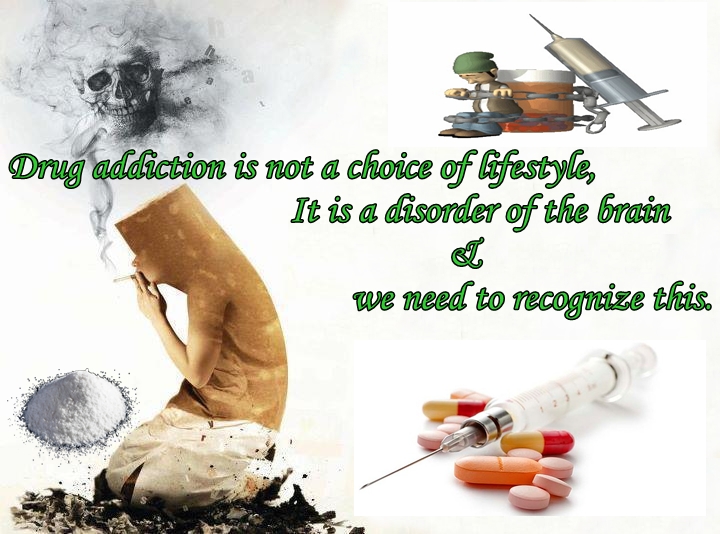
dependence – an adaptive state associated with a withdrawal syndrome upon cessation of repeated exposure to a stimulus (e.g., drug intake).addictive drug – psychoactive substances that with repeated use are associated with significantly higher rates of substance use disorders, due in large part to the drug's effect on brain reward systems.addiction – a biopsychosocial disorder characterized by persistent use of drugs (including alcohol) despite substantial harm and adverse consequences.Substance addiction įurther information: Substance abuse and Substance-related disorder Addiction and dependence glossary neuropsychological symptoms) that can but do not necessarily involve withdrawal issues. In the ICD-11, "substance-use dependence" is a synonym of "substance-use addiction" (i.e. mental disorders) involving withdrawal issues. In the DSM-5, dependences differ from addictions and can even normally happen without addictions besides, substance-use dependences are severe stages of substance-use addictions (i.e. " Dependence" is also a polyseme denoting either neuropsychological symptoms or mental disorders. It is a definition that many scientific papers and reports use. (2016) report that the DSM-5 defines addictions as the most severe degree of the addictive disorders, due to pervasive/excessive substance-use or behavioural compulsions/impulses. However, there is no agreement on the exact definition of addiction in medicine. limit subjects' social/family and occupational activities) the two categories of such disorders are substance-use addictions and behavioural addictions. Addictive disorders or addiction disorders are mental disorders involving high intensities of addictions (as neuropsychological symptoms) that induce functional disabilities (i.e.

alcohol, betel quid, drugs, sex, gambling, video gaming). A common use of "addiction" in medicine is for neuropsychological symptoms denoting pervasive/excessive and intense urges to engage in a category of behavioural compulsions or impulses towards sensory rewards (e.g. " Addiction" and " addictive behaviour" are polysemes denoting a category of mental disorders, of neuropsychological symptoms, or of merely maladaptive/harmful habits and lifestyles. The DSM-5 and ICD-10 only recognise gambling addictions as behavioural addictions, but the ICD-11 also recognises gaming addictions. Alternatively, behavioral addictions may include gambling addiction, internet addiction, social media addiction, video game addiction and sexual addiction. Įxamples of drug (or more generally, substance) addictions include alcoholism, marijuana addiction, amphetamine addiction, cocaine addiction, nicotine addiction, opioid addiction, and eating or food addiction. Habits and patterns associated with addiction are typically characterized by immediate gratification (short-term reward), coupled with delayed deleterious effects (long-term costs). Classic signs of addiction include compulsive engagement in rewarding stimuli, preoccupation with substances or behavior, and continued use despite negative consequences. This phenomenon – drugs reshaping brain function – has led to an understanding of addiction as a brain disorder with a complex variety of psychosocial as well as neurobiological (and thus involuntary) factors that are implicated in addiction's development. Repetitive drug use often alters brain function in ways that perpetuate craving, and weakens (but does not completely negate) self-control. Psychiatry, clinical psychology, toxicology, addiction medicineĪddiction is a neuropsychological disorder characterized by a persistent and intense urge to use a drug or engage in a behaviour that produces natural reward, despite substantial harm and other negative consequences. severe substance-use disorder, gambling disorder)īrain positron emission tomography images that compare brain metabolism in a healthy individual and an individual with a cocaine addiction

substance-use addiction, sexual addiction), dependence, addictive disorder, addiction disorder (e.g.


 0 kommentar(er)
0 kommentar(er)
